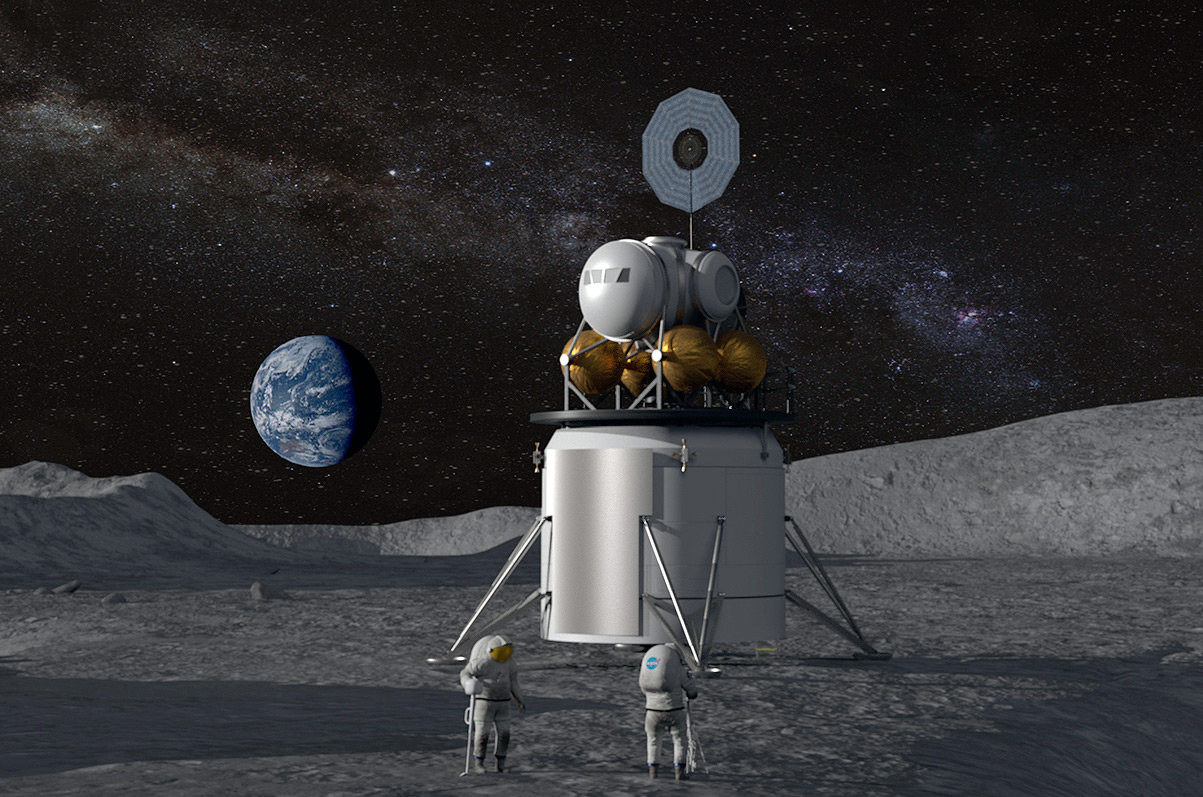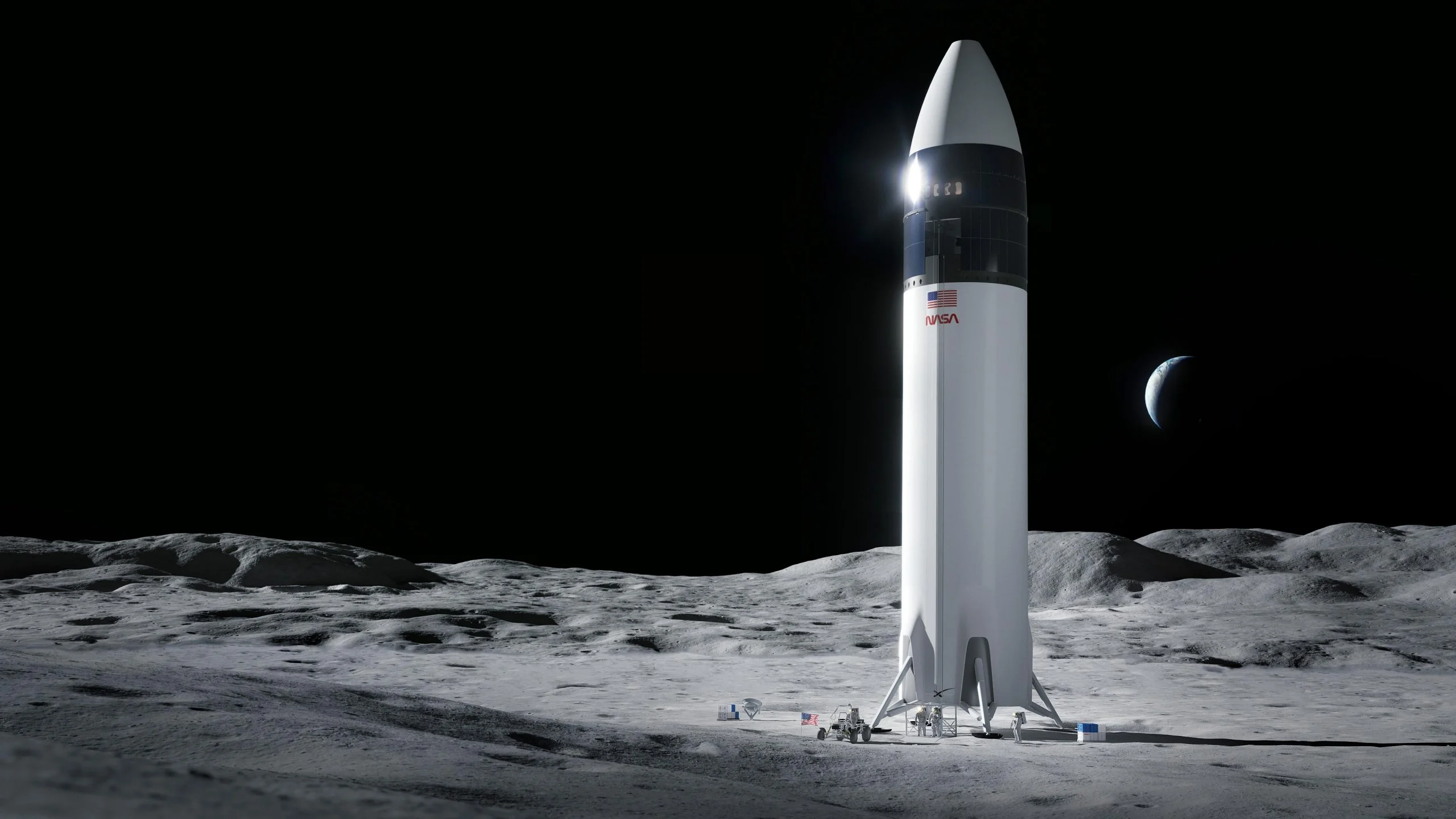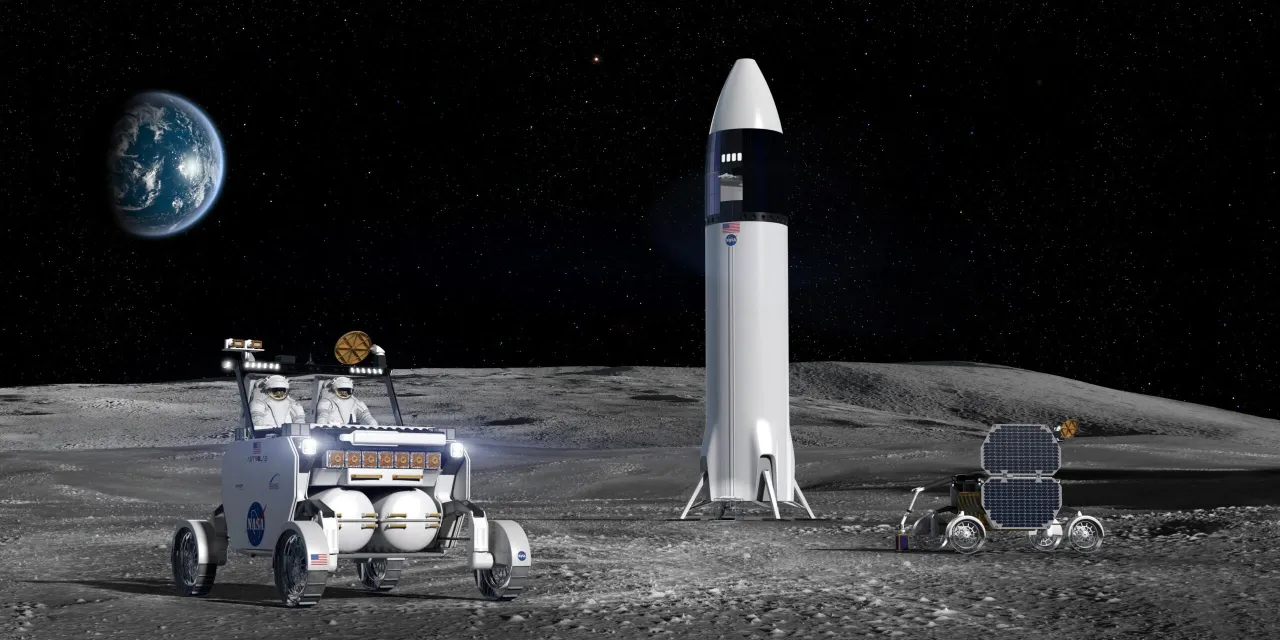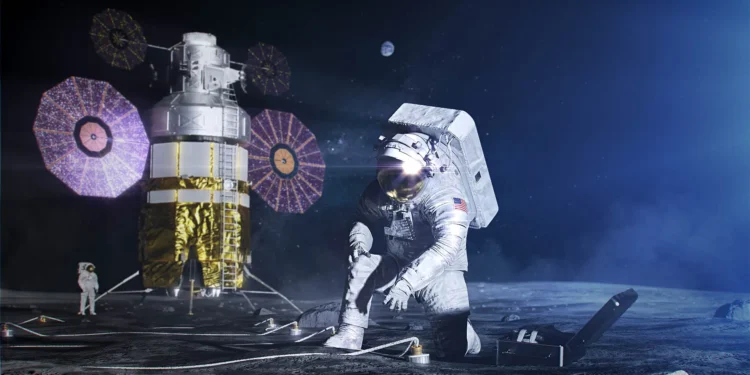In a significant move that underscores the increasing collaboration between NASA and private aerospace enterprises, the space agency has outlined its expectations for SpaceX and Blue Origin in a daring lunar logistics operation. This collaboration aims not just to mark another milestone in space travel but also to cement the role of private sector innovation in shaping our approach to exploring the heavens.

SpaceX and Blue Origin Take on New Roles in Lunar Exploration
NASA’s latest directive involves two major players in the private aerospace industry: SpaceX and Blue Origin. Each company has been tasked with delivering critical components for upcoming moon missions. SpaceX is set to deliver a pressurized rover, which is crucial for the upcoming lunar exploration missions. On the other hand, Blue Origin is entrusted with a lunar surface habitat, an essential part of long-term human presence on the moon.
This strategic distribution of responsibilities not only highlights the unique capabilities of each company but also underlines NASA’s confidence in their technological prowess and reliability. Such collaborations are pivotal as we aim toward sustainable exploration and eventual colonization of lunar surfaces.
Navigating Challenges and Enhancing Lunar Logistics
The logistics of delivering such significant payloads to the moon involve complex challenges, ranging from the design and manufacturing of the payloads to their safe landing on the lunar surface. Both companies have been refining their technology to meet these demands. For SpaceX, the development of a pressurized rover involves ensuring that it can operate effectively in the harsh lunar environment, providing astronauts with safe and reliable transportation on the moon’s surface.

Blue Origin’s lunar surface habitat is tasked with a different set of challenges. It needs to support human life in extreme conditions, providing everything from shelter to scientific facilities, all while maintaining the integrity of its structure and systems in a non-terrestrial environment.
The Broader Impact of Private Sector Involvement in Space Exploration
The involvement of SpaceX and Blue Origin in NASA’s lunar missions is not just a testament to their technological capabilities but also a strategic move to foster innovation through competition and collaboration. By engaging private companies, NASA can leverage their dynamic approaches to problem-solving and technology development, potentially reducing costs and timelines for space exploration projects.
Moreover, this partnership is indicative of a broader shift towards the commercialization of space, where government agencies and private enterprises collaborate more closely than ever. This model not only accelerates technological advancements but also opens up new avenues for economic activities in space, paving the way for future endeavors beyond Earth’s orbit.

Conclusion: A New Era in Lunar Exploration
As we stand on the brink of a renewed era in lunar exploration, the roles of SpaceX and Blue Origin are crucial. With their cutting-edge technologies and ambitious plans, these companies are set to play a pivotal role in not just ferrying equipment to the moon but also in shaping the future of human activity in space. The continued partnership between NASA and these private sector giants is bound to push the boundaries of what’s possible, turning the stuff of science fiction into science fact.










